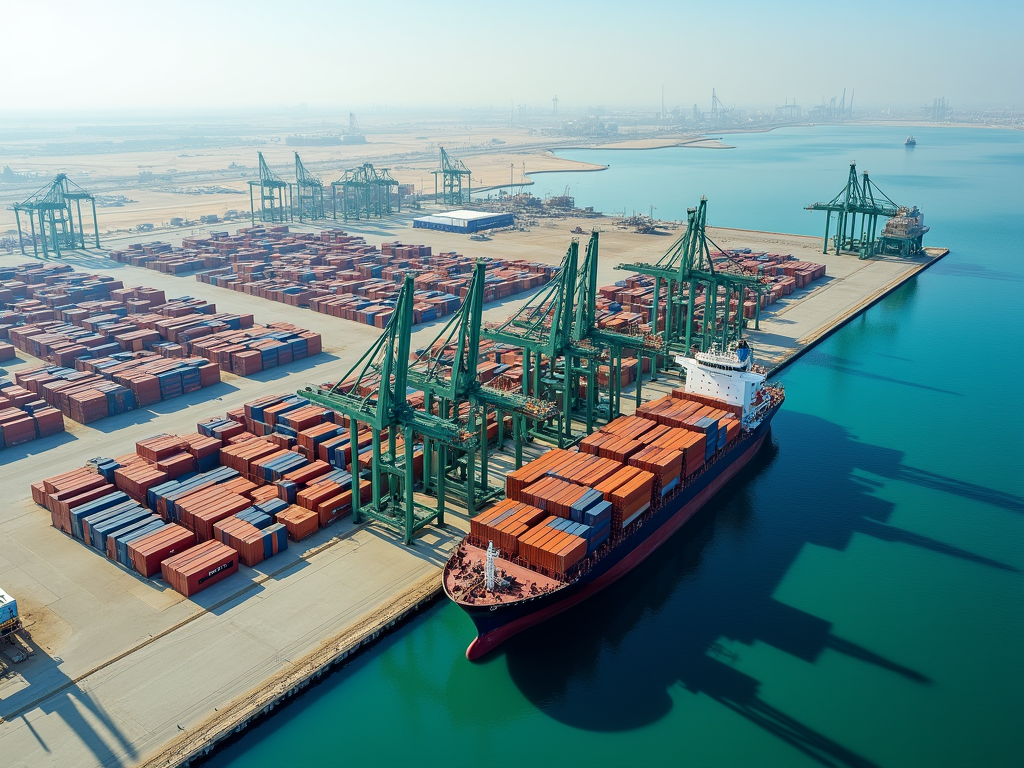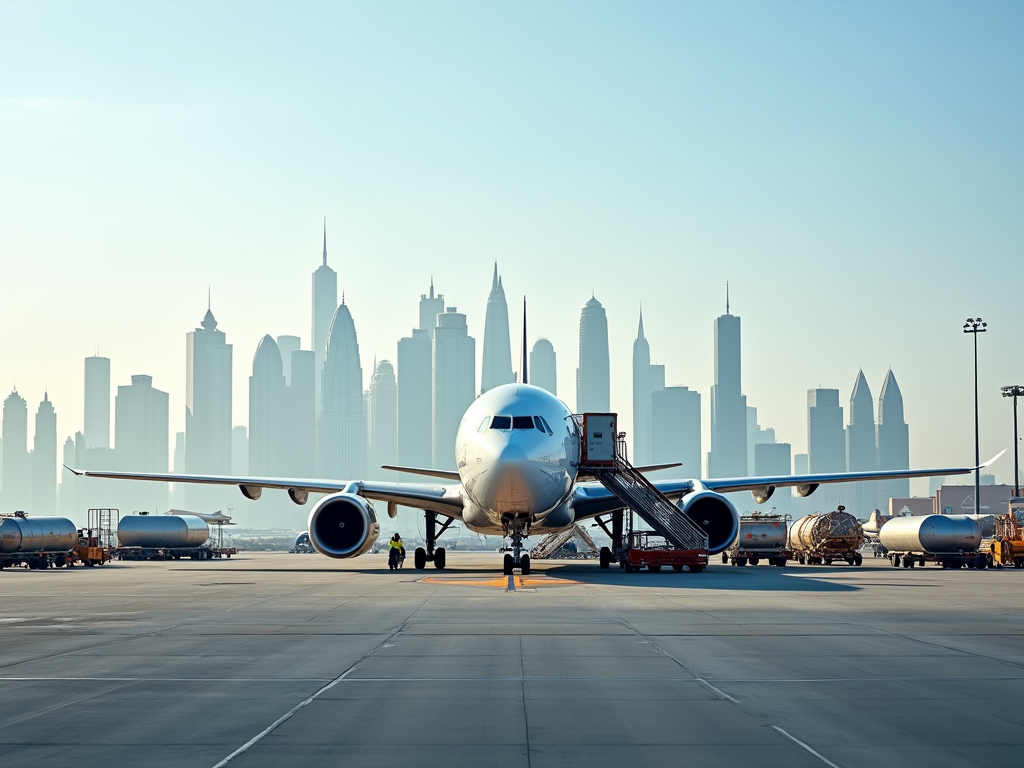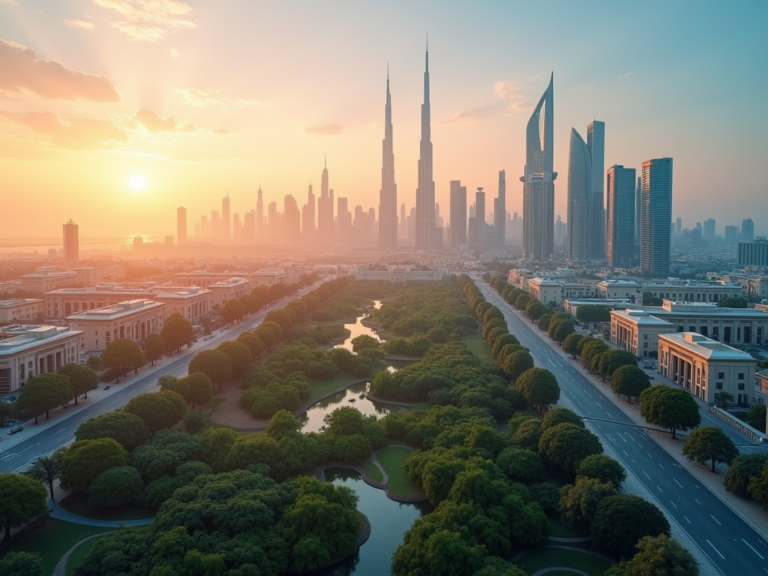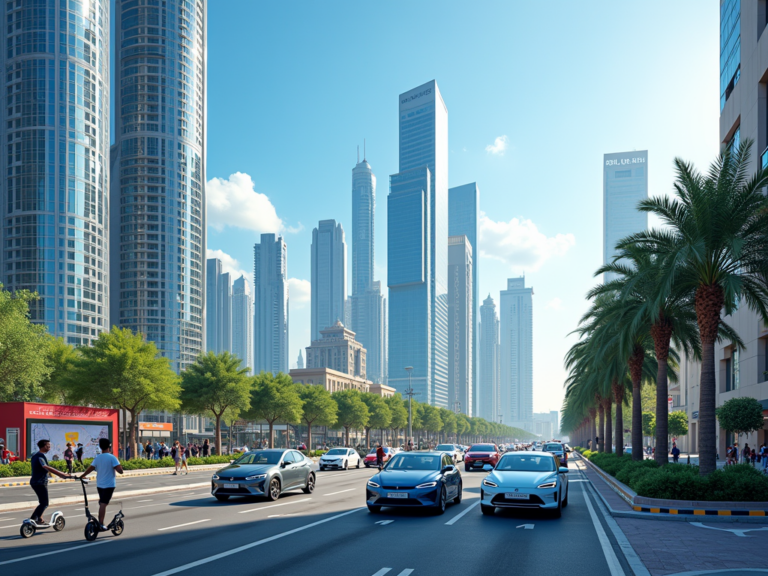Dubai’s logistics and transportation industry plays a critical role in supporting business operations by providing efficient, reliable, and sophisticated systems that facilitate the movement of goods locally and internationally. With its strategic location as a gateway between Europe, Asia, and Africa, Dubai has developed robust infrastructure that caters to diverse sectors, including trade, tourism, and manufacturing. This article explores the key components of Dubai’s logistics and transportation industry and how they contribute to the overall success of businesses operating within the region.
The Significance of Dubai’s Strategic Location

Dubai’s geographical position is one of the primary reasons for its booming logistics and transportation sector. The city serves as a nexus for global trade, enabling swift connectivity between key markets. This location offers several advantages:
- Proximity to key shipping routes, reducing transit times.
- Access to over 2.5 billion consumers in the surrounding region.
- Highly developed transport networks that integrate air, sea, and land logistics.
- Major international airports facilitating rapid air freight services.
- Well-established free trade zones that incentivize businesses.
These advantages allow Dubai to function as a vital hub for international commerce, thereby streamlining operations for businesses looking to expand their reach. The integration of advanced technology further enhances these logistical capabilities, ensuring efficiency and transparency in supply chain management.
Investment in Infrastructure and Technology

The continuous investment in infrastructure and cutting-edge technology has allowed Dubai to remain competitive in the logistics industry. In recent years, the government and private sector have poured substantial resources into enhancing ports, airports, and road systems. Key initiatives include:
- Expansion of Jebel Ali Port, one of the largest and busiest ports in the world.
- Upgrades to Dubai International Airport to increase capacity and improve services.
- Development of smart logistics solutions that incorporate IoT and AI technologies.
- Creation of a Rail network to increase inter-modal connectivity.
- Investment in sustainable logistics practices to reduce environmental impact.
This commitment to infrastructure development not only improves logistical efficiency but also attracts global companies to establish their operations in Dubai, leading to job creation and economic growth.
Diverse Transportation Modes and Services
Dubai’s logistics and transportation industry is characterized by its diverse range of transportation modes and services. Businesses can benefit from multiple channels of transportation, allowing for flexibility and optimization in their operations. Here are the primary modes available:
- Air Freight: Fastest way to transport high-value or perishable goods with services offered by both cargo airlines and passenger planes.
- Seafreight: Ideal for bulk shipments, with multiple shipping lines operating out of Jebel Ali Port.
- Road Transportation: Extensive road networks facilitating last-mile deliveries across the UAE and neighboring GCC countries.
- Rail Transportation: Emerging options for heavy freight with planned expansions enhancing connectivity.
- Logistics Services: Third-party logistics (3PL) providers offering warehousing, freight forwarding, and supply chain management.
By leveraging these various modes, businesses can tailor their logistics strategies to meet their unique requirements, ensuring timely delivery and efficient inventory management.
Regulatory Environment Supporting Business Operations
The regulatory framework in Dubai has evolved to support a thriving logistics and transportation industry. The government has implemented policies aimed at simplifying procedures for businesses, thereby fostering a conducive environment for growth. Key regulations include:
- Easy business registration processes for logistics companies.
- Flexible customs laws that streamline import/export procedures.
- Incentives for businesses operating within free trade zones.
- Promoting partnerships between the public and private sectors to enhance logistics capabilities.
- Support for innovation and technology adoption in logistics.
This regulatory support not only increases the ease of doing business but also instills confidence in both local and foreign investors, contributing to Dubai’s reputation as a leading business hub.
Conclusion
Dubai’s logistics and transportation industry plays an integral role in supporting business operations, driven by its strategic location, significant investments in infrastructure, diverse transport modes, and a progressive regulatory environment. As global trade continues to grow, Dubai stands at the forefront, providing businesses with the tools and resources necessary to thrive in a highly competitive marketplace. By embracing these advantages, companies can optimize their operations and expand their reach, making Dubai a premier destination for business growth.
Frequently Asked Questions
1. What are the main transportation modes used in Dubai’s logistics industry?
The primary transportation modes in Dubai include air freight, seafreight, road transportation, rail transportation, and logistics services offered by third-party providers.
2. How does Dubai’s strategic location benefit businesses?
Dubai’s strategic location serves as a gateway between Europe, Asia, and Africa, providing access to over 2.5 billion consumers and enabling faster transit times.
3. What infrastructure investments have been made to support the logistics industry?
Investments include the expansion of Jebel Ali Port, upgrades to Dubai International Airport, development of smart logistics technologies, and enhancements to road networks.
4. How does the regulatory environment promote logistics in Dubai?
The regulatory environment supports the industry through simplified business registration, flexible customs laws, incentives in free trade zones, and promotion of public-private partnerships.
5. Why is sustainability important in Dubai’s logistics sector?
Sustainability is critical as it reduces the environmental impact of logistics operations, aligns with global trends towards greener practices, and meets the demands of eco-conscious consumers.








